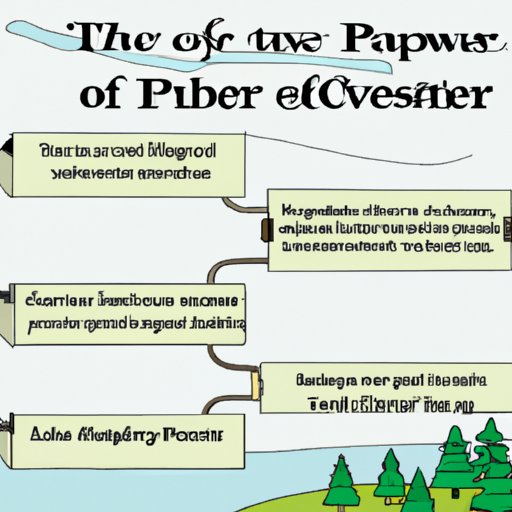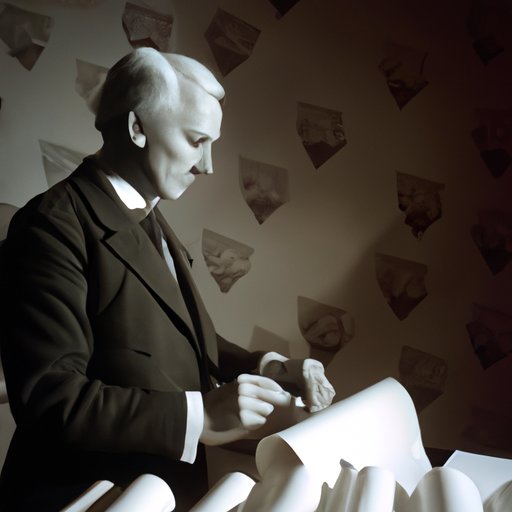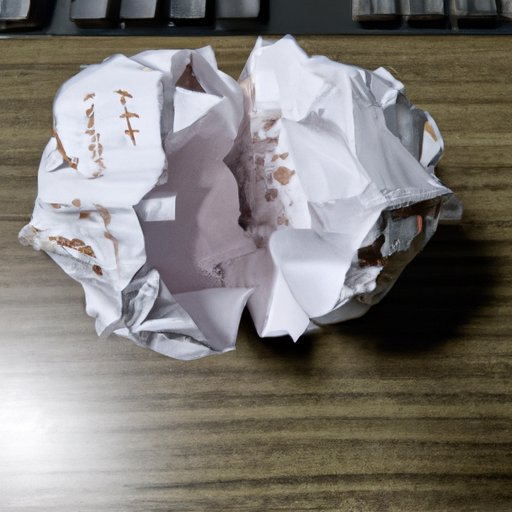Introduction
Paper has been a major part of human history for centuries. It has changed the course of our development and is one of the most important inventions of all time. In this article, we’ll explore the origin and development of paper, analyze the impact it had on society, and profile the inventor of paper and examine their legacy.

Historical Overview of the Invention of Paper
Paper was first invented in China during the Han Dynasty (206 BC – 220 AD). According to ancient records, the process of making paper was developed by Cai Lun, an official of the Imperial Court. His method involved beating plant fibers, such as bamboo and hemp, into a kind of pulp, then pressing and drying the pulp into thin sheets of paper. This process was much more efficient than the traditional methods of writing on papyrus or parchment.
Over the next few centuries, the invention of paper spread across Asia. By the 8th century, paper had reached Japan, Korea, and India. It wasn’t until the 12th century that paper was introduced to Europe, with the Islamic Conquest of Spain. From there, it spread rapidly throughout the continent.
Analyzing the Impact of Paper on Society
The invention of paper had a profound impact on society. Before its invention, books were written on scrolls and tablets, which were expensive and difficult to produce. With paper, books became much easier and cheaper to make, and knowledge could be disseminated more quickly and widely. This led to a surge in literacy rates and the spread of ideas and knowledge.
In addition, paper revolutionized communication. Letters, newspapers, and other forms of correspondence could now be written and sent with ease. This allowed people to stay connected over long distances, and opened up new opportunities for trade and commerce.
Finally, paper allowed for the preservation of knowledge. Before paper, documents had to be written on fragile materials like parchment. With paper, documents could be stored and archived safely, allowing for the accumulation and safekeeping of knowledge over time.

Profiling the Inventor of Paper
Cai Lun is credited with inventing the process of making paper. He was born in Guiyang, China in 50 AD and served as an official in the imperial court of Emperor He of Han. He is said to have presented his invention of paper to the emperor in 105 AD, and is credited for revolutionizing communication and knowledge sharing in China and beyond.
Cai Lun’s legacy lives on today. He is remembered as one of the greatest inventors in Chinese history and his invention of paper has had a lasting impact on the world. He is honored with a statue in Beijing and a Google Doodle, and his name is recognized around the world.
Conclusion
The invention of paper has had a profound impact on human civilization. Its invention allowed for the spread of knowledge, the preservation of documents, and the improvement of communication. Its inventor, Cai Lun, is remembered as one of the greatest inventors in Chinese history and his legacy continues to live on today.
(Note: Is this article not meeting your expectations? Do you have knowledge or insights to share? Unlock new opportunities and expand your reach by joining our authors team. Click Registration to join us and share your expertise with our readers.)
